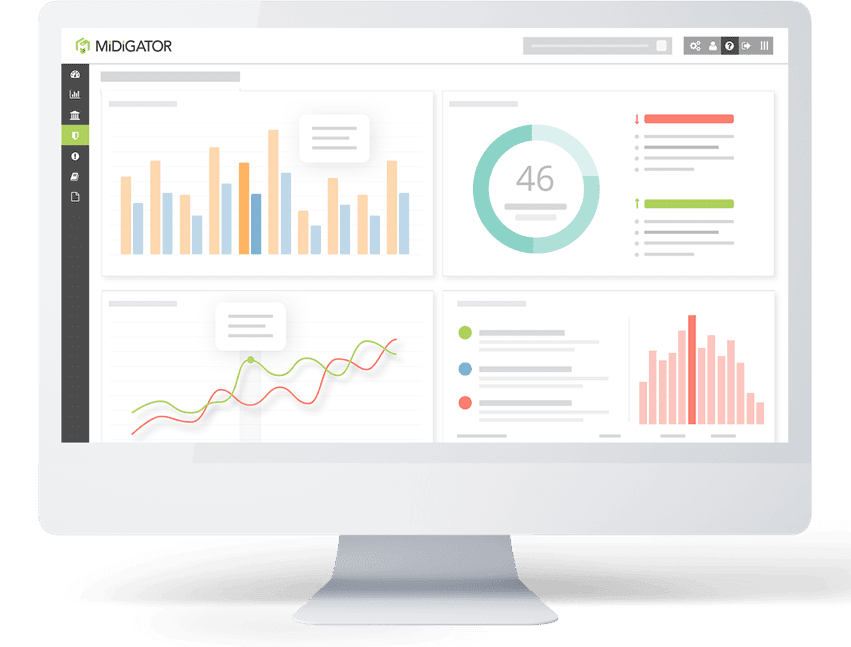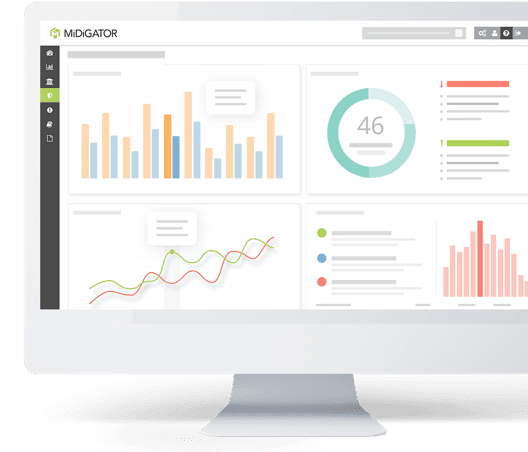The State of Chargebacks 2022
Chargebacks are a confusing, labor-intensive, and costly problem for businesses of all sizes in all industries. One of the best ways to overcome those challenges is with data analysis.
And we have just the insights you need.
Midigator’s annual report, The Year in Chargebacks, takes a deep dive into the most recent trends impacting businesses today. The data reveals actionable insights that can help improve any chargeback management strategy.
-
Which chargeback management techniques are most popular?
-
What challenges do merchants need to be aware of?
-
How can merchants overcome those challenges?
-
How do individual results compare to industry averages?
-
What’s in store for the future?
Check out this can’t-miss webinar. Get insider insights and tips you won’t find anywhere else.
Speakers and Hosts
- Mark Standfield, President | Midigator
- Joe Libby, SVP of Operations | Midigator
- Domenic Cirone, SVP, Acquirer Solutions | Midigator
- Lauren Vanegas, Customer Marketing Manager | Midigator
Q&A Takeaways
Our company is receiving disputes involving employees using a payment card in the business owner’s name for our services. It’s hard to submit proof for these transactions. What evidence should we be providing with our response?
Responding to a chargeback with correct information is important. Provide compelling evidence the disputing party can’t easily ignore. This includes AVS and CVV verification, as well as a detailed invoice. Enriched data such as notes indicating the card was used by the employee for the intended purpose is also recommended.
Unfortunately, even with compelling evidence and enriched data, the cardholder can persist the transaction is not recognized. This frustratingly burdens your business to prove the transaction was authorized. The good news is with Visa’s upcoming CE 3.0 initiative, your business will be protected from these friendly fraud disputes. Beginning in April 2023, if you can prove that a cardholder has not disputed previous transactions, it will be an immediate win for your business.
Is a merchant due a refund for chargeback fees because they are utilizing RDR?
In theory, it was initially thought a merchant using RDR would not be charged a first chargeback fee since they paid an RDR fee. This is in line with prevention alerts – if the merchant pays a prevention alert fee, a merchant does not pay a chargeback fee. It seems sensical, right?
In real life, however, that’s not what we are seeing.
The RDR process is essentially the issuer sending chargeback data to resolve with the acquirer. And resolving the case can mean reviewing transactions, pushing funds, or reconciling accounts. While the exact definition depends on the processor, the outcome is the same — work is being done. Therefore, a first chargeback fee is assessed to the acquirer. And the fee is further passed along to the merchant.
We recommend discussing the situation with your processor to see if they can issue a partial or full refund on the dispute since you are participating in RDR.
Have you seen an increase in fraud attacks when merchants choose to refund an alert?
Currently, processors and acquirers are not seeing increased fraud attacks when choosing to refund an alert. But they certainly understand the concern.
Do you think the fraud tool Kount is good?
Yes, Kount is a robust, front-end transaction scrubbing tool.
Do you know why my fraud chargeback count does not match my fraud transaction count?
There are a couple reasons why the two metrics wouldn’t match. Basically because not all fraud counts equate to chargeback counts, just as all chargebacks are not related to fraud.
There are various tools that can stop chargebacks from happening. For example, 3D Secure. If a transaction is fully authenticated through 3DS, the issuer is not able to initiate a chargeback. The functionality is blocked in the card brand’s technology platform. So you won’t receive a chargeback — but the transaction could still be marked as fraudulent. The same is true with RDR. Refunding can eliminate the need for a chargeback, but the transaction is still fraud.
For a card-present merchant with full TAP or EMV chip reads, a fraud chargeback is prevented. But again, the transaction could still potentially hit your fraud transaction count.
Ultimately, if the numbers aren’t making sense, contact your processor or acquiring bank and request a fraud report.
Does it hurt your merchant account if you do not fight a chargeback?
Suppose a processor is not communicating with a merchant and is not fully educated on the circumstances surrounding a chargeback. In that case, the only thing it can do is make decisions in a vacuum with the information available.
And if you don’t fight the chargeback — and there is no other communication — the assumption could be that you were at fault. If you are perceived as guilty often enough, it can have unintended negative consequences on your ability to process payments.
In Midigator’s experience, it always looks more favorable, especially from a risk management standpoint, if the merchant regularly responds to disputes with enriched and correct data.
However, you should never respond to a chargeback with inaccurate or invalid data. Doing so opens your business to potential levies from your processor, including account termination.
Do you have experience with Mexican disputes?
We do have clients operating in Mexico. While some nuanced regional chargeback processes exist, Visa and Mastercard adopted global chargeback rules in 2018 to help standardize the industry.
However, it’s not only understanding the rules that matter but also having insights into what’s needed for a merchant to retain positive ROI in that region.
We have a long-term issue with fraudulent transactions on our site. The card number is always different, but the name and email address are similar. What can we be doing to block these charges?
It’s important to look into more traditional fraud solutions such as velocity checks, CAPTCHA, device ID and IP address blocking in this scenario.










